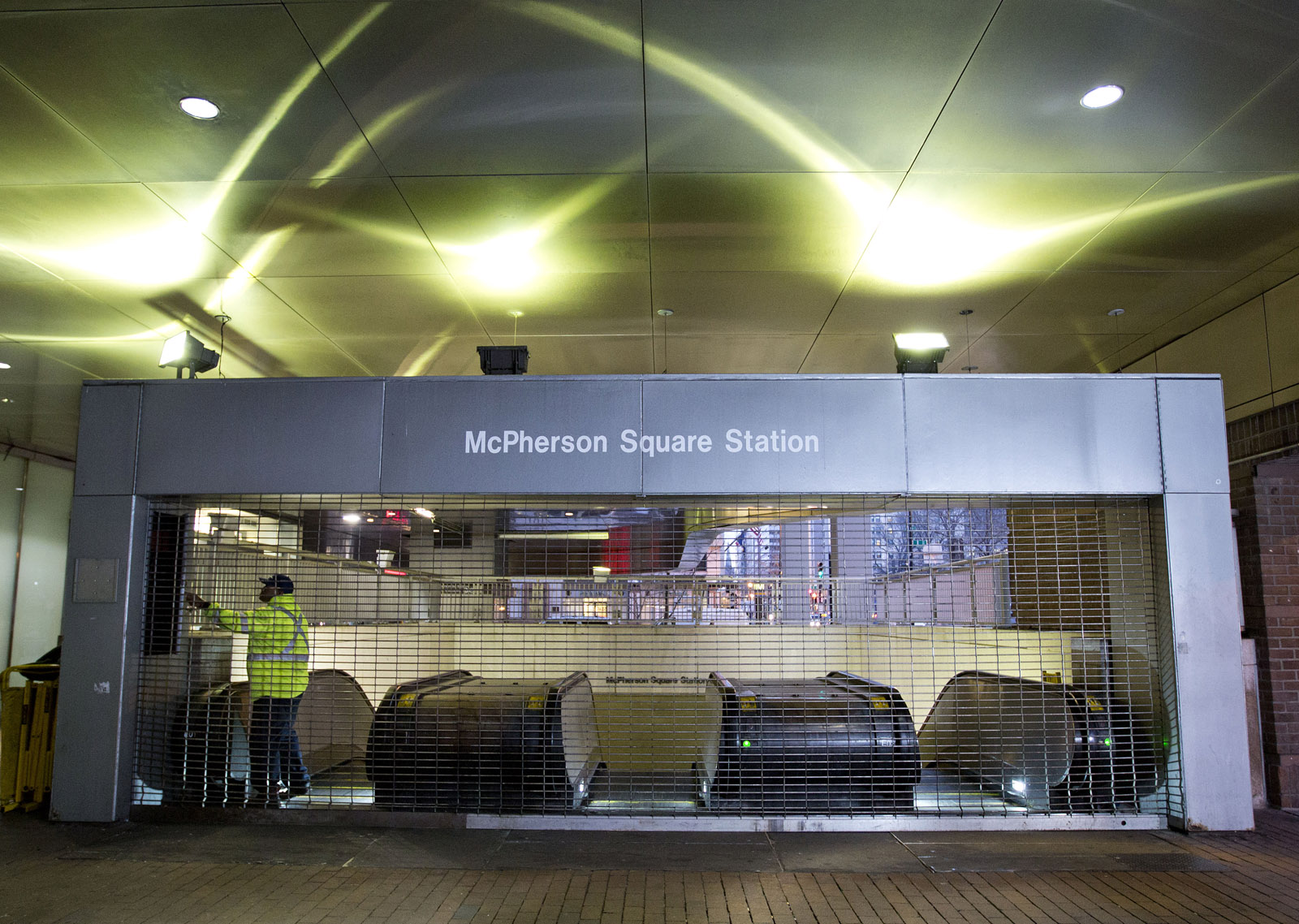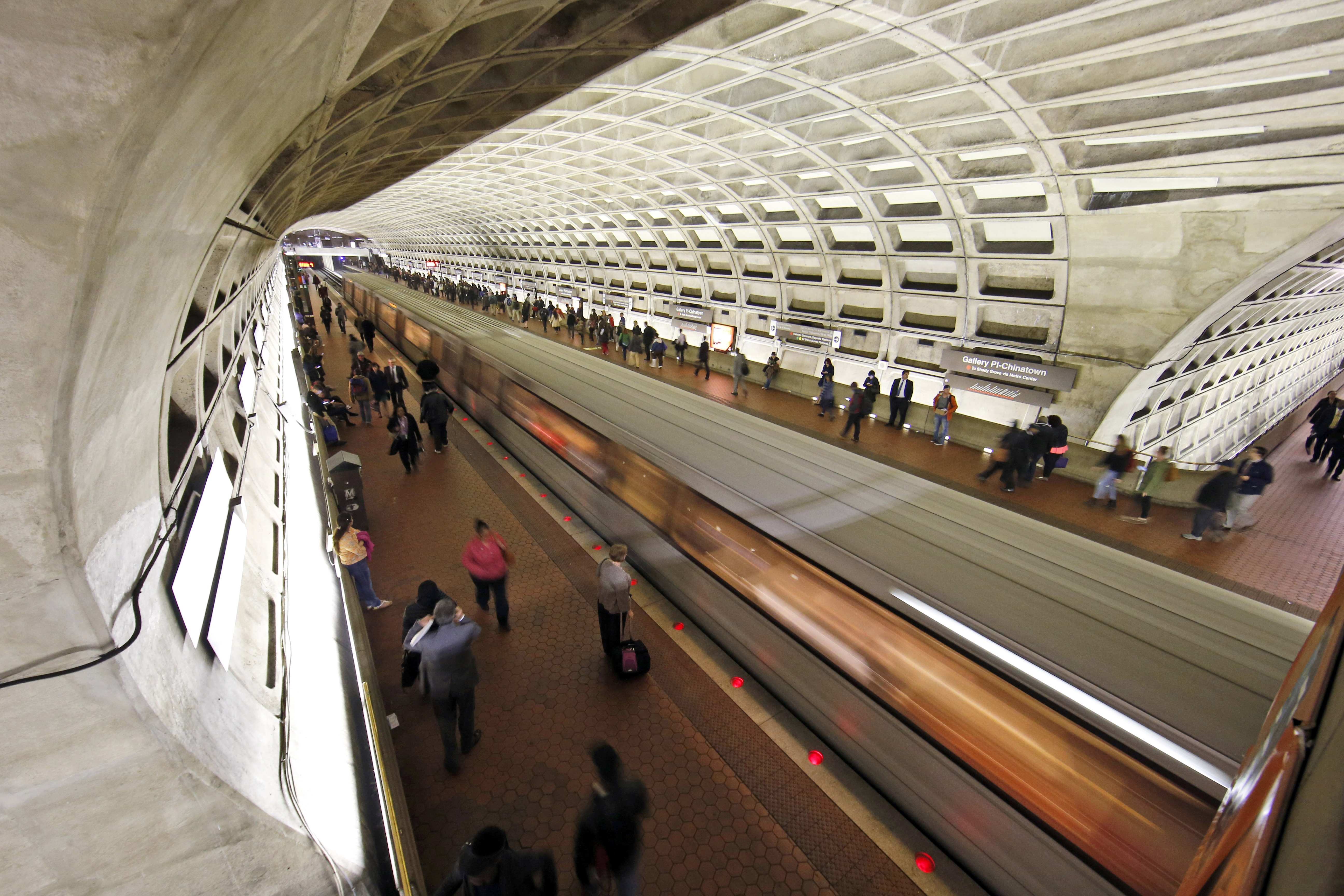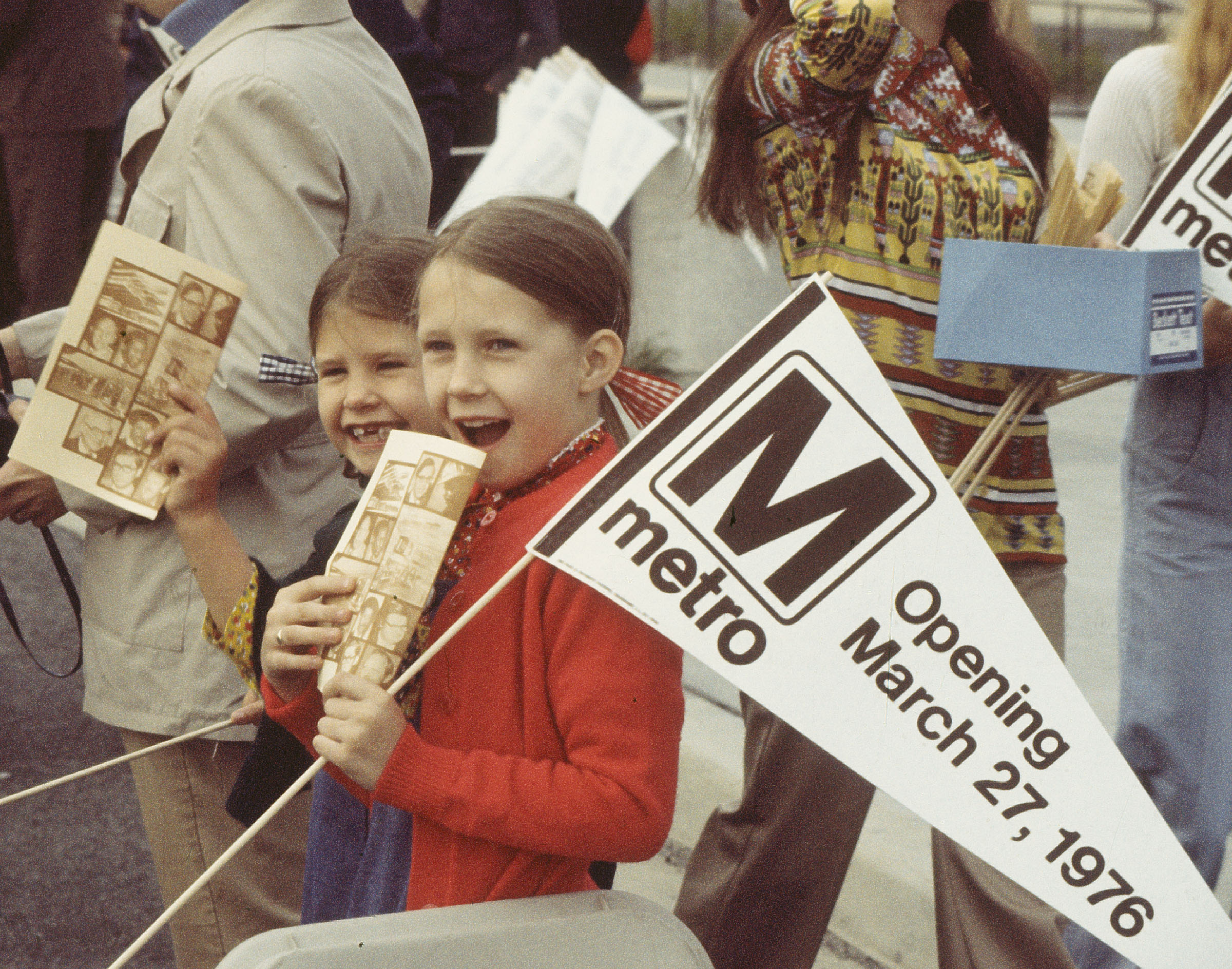WASHINGTON – To reach its overall goals, Metro should aim for quick wins with riders — better communication, increased police presence and faster escalators, according to a draft consultant report released by Metro this week.
It could take several months or years for the agency to reach its aspirations of running trains and not-so crowded buses that arrive on time. A number of root issues have led to an increasing number of late trains, the report said.
“Railcar maintenance is the single most important determinant of service reliability and a major driver of safety, cost and customer satisfaction,” consultants wrote. “Sixty-three percent of all rail line delays are caused by railcar failures.”
Thirty-six percent of delays are caused by railcars that aren’t ready to go into service. Twenty-seven percent of delays are due to a failure that causes trains already on the line to be pulled from service.
Metro has said a few of those problems are being improved, and that maintenance changes have begun in the last few weeks.
In January, the report estimated, maintenance technicians spent far less time actually working on cars than the industry standard.
Metro General Manager Paul Wiedefeld is nearing an announcement on a major overhaul of track work and other changes based on the findings of several consultant reports.
The agency announced Tuesday that it hired a new chief safety officer, who will help prioritize many new projects and ensure enough time is dedicated to safety work.
Part of that is a new systemwide plan for more intensive capital projects like track fixes and railcars. Metro has consistently failed to spend a significant portion of the money in its capital budget each year.
Some short-term fixes recommended by McKinsey consultants include new “customer experience initiatives,” an overhaul for MetroAccess, increased service on crowded bus routes, and a closer look at the many layers of the Metro organization, similar to the overhaul Wiedefeld already announced at the management level.
Longer-term suggestions include the railcar fixes, improvements in key bus corridors, and updating train arrival signs in stations. They should show real arrival times, not estimations, the report said.
Another suggestion: fix the public address system in railcars so riders can actually understand what train operators are trying to say. That update is already in the works.
Among other changes, the consultants want Metro to cut human resources and other costs.
There is a focus on overtime and other labor expenses, while also cutting down on fare evasion and increasing income from advertising or concessions at rail stations.
Metro’s largest union contract expires in June, which could set up a major standoff.
All this comes as riders are less satisfied with the system, and ridership numbers are falling. “Rail system revenues would need to grow at 7 percent every year to 2020 to maintain current operating deficit,” the report said.
Suggestions to increase revenue, many of which were included in Wiedefeld’s announcement of management changes, include privatizing parking or increasing enforcement, and considering selling Metro property like the headquarters building downtown.
That management overhaul needs someone to watch it, the consultants say, with a transformation office to make sure the changes really happen.
The consultant report acknowledges the changes, even if carried out correctly, can take from 12 months to three years to take hold.







